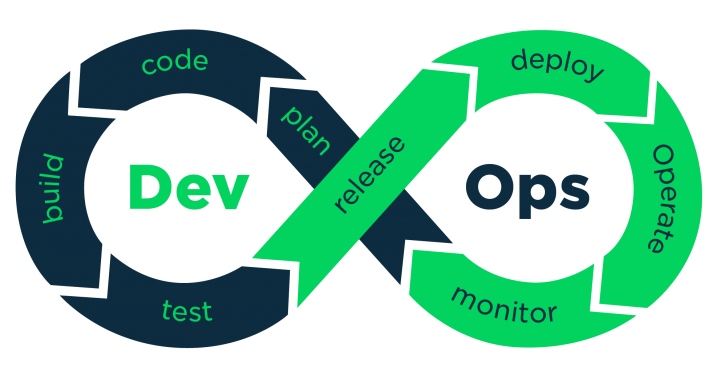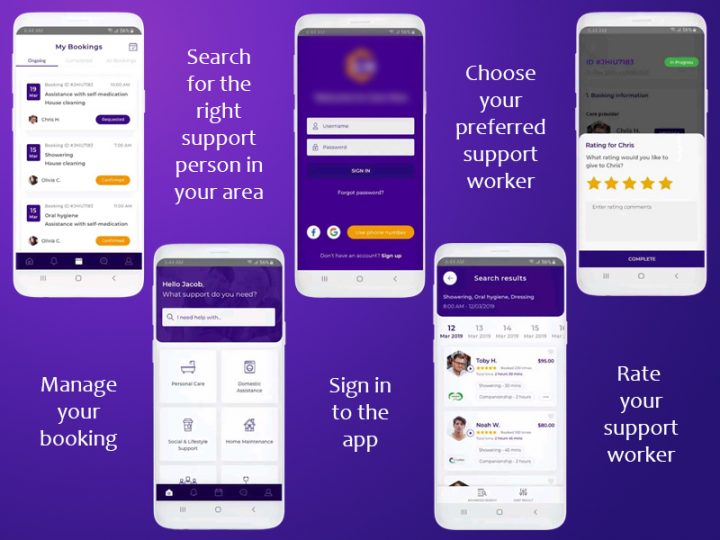Top Ways DevOps Transforms Modern Software Development
In nowadays growing IT industry, DevOps has become one-stop solution to many tech firms. DevOps enhances functional abilities and unification of development and operational teams across the entire application lifecycle. Successful DevOps implementation has become the goal of tech companies all over the world. This article will help you understand the concept of DevOps and how DevOps benefits software development.
What is DevOps?
DevOps is the combination of software development (Dev) and Information Technology Operations (Ops), all together in the whole service lifecycle, from designing through development process to production support and maintenance.
DevOps puts an emphasis on communication, integration and cooperation in both development and operation. While timeliness is the ultimate priority in Agile, DevOps equally values time and quality. It focuses more on automating the process, arranging teams and enhancing organization’s speed for rapid deployment of products.
The 6C’s of DevOps Adoption

1. Continuous Planning
The entire project team (developers, business analyst, testers, and operations team) together discuss and make decisions on the scope of the application, estimate outcomes and identify resources needed.
2. Continuous Integration
Continuous Integration (CI) is a development practice where developers integrate code into a shared repository frequently, preferably several times a day. Each integration is verified by an automated build and automated tests. Each change is small, thus, it is easier to pinpoint a defect. Integrating regularly helps to detect errors much quicker, reaching an error-free build environment.
3. Continuous Testing
Continuous Testing emphasizes on testing early and often. By executing automated tests as part of the software delivery pipeline to obtain feedback. Continuous testing provides insight on whether the software can be released. Testing ensures the quality of the product delivered to the customer and avoids business risk when a product is released to the market.
4. Continuous Delivery
Continuous Delivery is the practice of keeping your codebase deployable at any point. The application needs to pass automated tests as well as have all the configuration necessary to push into production. Every change has to be pushed to a test or production environment immediately to ensure a fast development loop.
5. Continuous Monitoring
Continuous Monitoring keeps track of the application’s performance and guarantees that the production environment is always kept stable.
6. Continuous Deployment
Continuous Deployment means keeping your application deployable at any point. Every change that passes the automated tests through Continuous Testing is deployed to the production environment automatically with a view to increasing the frequency and quality of deployments.
How DevOps benefits software development
Reduce bug fixing time
The adoption of DevOps culture helps to develop collaborative relationships between development and operation teams. This enhances flexibility within the IT department, thus speeding up the bug fixing process. The scope and responsibility for application performance is shared between both departments. Instead of just developing code and delivering this to the operation team to place in production, the development team is more involved in the process from the start, quickly pinpoint problems which the operation development can also view. Everyone has full visibility of application performance, understands each other’s way of working and understands why certain changes have been made.
Continuous testing uses automated tests to evaluate every code change, making sure the code passes all the tests and keeps the build defect free.
Continuous delivery ensures that any time the infrastructure changes, the change is updated throughout the delivery environment. No more “it works on my machine” excuse.
Continuous assessment of the application helps software engineers get rich and actionable feedback. Based on that, developers are able to improve their own delivery speed and quality.
Faster release time to the market
Faster features delivery
DevOps approach makes it possible to release mobile apps in a shorter time span. Its ideology is to establish a working environment where the entire team marches towards a single goal. In traditional ways, developer teams can only deploy the product if the IT operation teams have tested it. The entire process is very time-consuming. DevOps can eliminate this entire process using automated testing. Now the development team can get quick feedback along with automatic code change thanks to automated integration. As a result, companies can easily release small updates of their product faster.
Optimize efficiency and creativity
Automated testing and integration take care of all routine tedious work, making time for developers to invest in value-creating work.
Enhanced code quality and quick recovery from failures
When a test fails, the bug is identified and fixed immediately. Automation is also improved each time the bug gets fixed. No more leaving bug fixing and future updates to the operation team, the development team is involved in the entire lifecycle of the product and not just the development stage. Developers can easily identify bugs and fix them while maintaining the same coding standard. This helps to improve code quality as well as speed up the process of updates and bug fixes.
All of the above contribute to faster release of mobile apps to the market while keeping a good standard of the product.
A culture of better communication and cooperation that every company should adopt
DevOps is not a technology. It is a culture that brings people from different expertise to collaborate, exchange ideas, assign tasks and accomplish/ deliver work with maximum speed.
This obviously empowers teams to work more effectively and continuously innovate to stay ahead in today’s fast changing environment.
DevOps implementation helps to save time, money, resource and ensures faster release time-to-market and delivery times. As a result, ROI is improved.
BHSoft’s DevOps Approach: Combining Agility and Efficiency
At BHSoft, DevOps is not just a technique—it's a core delivery philosophy alongside Agile. Our cross-functional teams collaborate seamlessly to maximize speed, reliability, and performance in every project. Leveraging our end-to-end DevOps services, we help clients accelerate development cycles while maintaining outstanding product quality.
Delivering Full DevOps Services for an Australian Client
Recently, an Australian customer partnered with BHSoft to fully manage their digital platform for finding and hiring support workers in domestic assistance, home maintenance, and nursing/personal care. They required a robust REST API to help mobile applications interact smoothly with their web and cloud-based services.
BHSoft provided a complete package: API architecture, development, documentation, versioning, and comprehensive DevOps services to ensure reliability and scalability.
Building a Clean, Consistent API Ecosystem
With years of experience designing APIs across diverse industries, our team built a clean, consistent, and maintainable API structure. The API included:
Clear documentation from day one
Proper versioning
Straightforward structure for smooth integration
To guarantee quality, we implemented unit testing to detect bugs early, streamline debugging, and significantly reduce maintenance costs.
Smooth Delivery with Agile + DevOps
By combining Agile methodologies and best-in-class DevOps practices, the entire development cycle ran smoothly and efficiently. The project was delivered on time with optimal performance, transparency, and collaboration.
CI/CD with Bitbucket Pipelines
For continuous integration and deployment, we utilized Bitbucket Pipelines to build, test, and deploy code. Bitbucket’s unlimited private repositories were the perfect fit for our small team of three engineers.
Cloud Infrastructure Managed Through AWS
As part of our DevOps services, we handled the client’s infrastructure using AWS for high availability and scalability:
- Elastic Beanstalk – server orchestration and automated environment management
- AWS RDS – secure and optimized database management
- Amazon S3 – reliable storage for images and documents
- CloudFront – fast content delivery and caching for the web platform
- Amazon Route 53 – domain and DNS management

Contact us today for more information.

